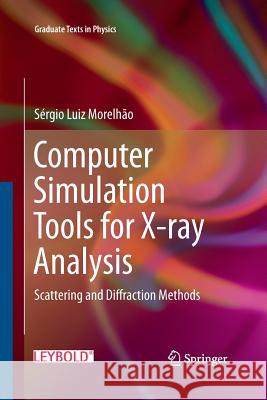Computer Simulation Tools for X-Ray Analysis: Scattering and Diffraction Methods » ksi─ů┼╝ka
topmenu
Computer Simulation Tools for X-Ray Analysis: Scattering and Diffraction Methods
ISBN-13: 9783319372969 / Angielski / Mi─Ökka / 2016 / 294 str.
Kategorie BISAC:
Wydawca:
Springer
Seria wydawnicza:
J─Özyk:
Angielski
ISBN-13:
9783319372969
Rok wydania:
2016
Wydanie:
Softcover Repri
Ilo┼Ť─ç stron:
294
Waga:
0.44 kg
Wymiary:
23.39 x 15.6 x 1.65
Oprawa:
Mi─Ökka
Wolumen├│w:
01
Dodatkowe informacje:
Wydanie ilustrowane











